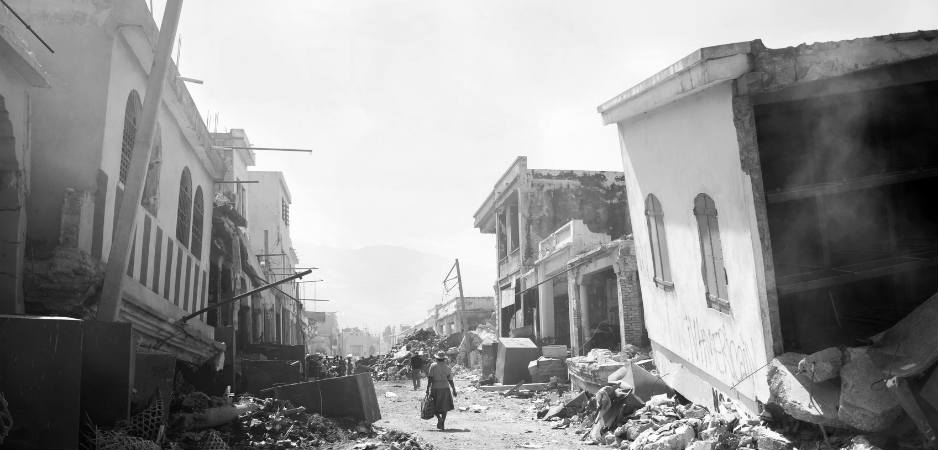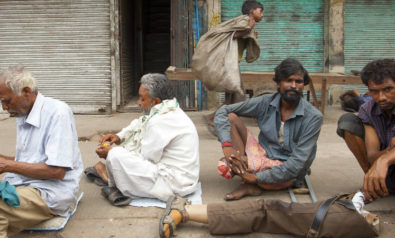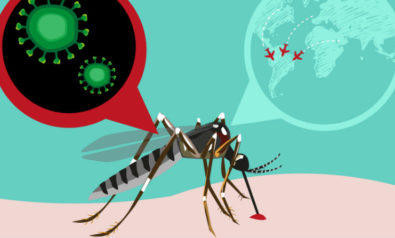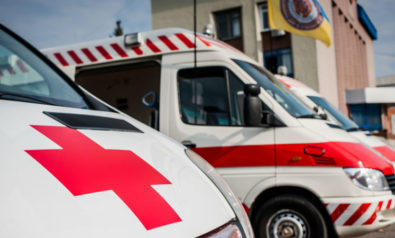Amidst a doctors’ strike and a hurricane in Haiti, a story of one couple’s determination to bring health care to the island.
In May 2016, when I heard the news of the doctors’ strike taking place in Haiti, my heart sank. Doctors, nurses and medical residents had been on strike since March as they protested low wages and demanded better working conditions, leading to the shutdown of Haiti’s largest hospitals. And now, as the news of the devastation caused by Hurricane Matthew floods in from Haiti, ever more families need access to health care and medicine as quickly as possible.
Since the strike began, hospitals have essentially closed, and Haitians in need of medical care have been left to compete to get into NGO-run hospitals whose facilities are overwhelmed, with no room for patients or enough resources to treat the abundance of injured and ill that fill the waiting rooms.
After spending the last six years working at a medical clinic near Jacmel, in Haiti’s Sud-Est Department, I knew firsthand just how desperately Haitians needed a reliable health care system and how devastating a strike of such magnitude must have been affecting the country.
Witness to Hardship
For a long time, I have been aware of how important the Friends of the Children of Haiti clinic (more commonly referred to as the FOTCOH clinic) is to Haitians. It was built in 2000, after its founders, Dick and Barb Hammond, had been bringing doctors and nurses to Haiti to create pop-up clinics to treat patients in incredibly remote areas of the country for nearly 15 years.
Since its completion, every year nearly 15,000 Haitian patients travel to the clinic to receive free medical care from visiting volunteer medical teams. FOTCOH provides much needed medical, dental, surgical and nutritional support for the poorest Haitians who would otherwise go without being treated, having no other means to afford to see a doctor. In the Sud-Est Department, there is only one main hospital, the St. Michel Hospital, and the cost to a patient exceeds the opportunity to meet with a doctor by a long margin. Patients are also expected to pay for medications before receiving them, as well as pay for their own food if it is required that they stay in the hospital overnight.
I met Dick and Barb in November 2011 when I traveled to Haiti for the first time. I had been recruited by my sister, Erin—a pharmacist in the United States, after she had worked alongside Dick and Barb in Haiti—to help at the clinic as a non-medical volunteer counting pills for the pharmacy. I didn’t think much about what the trip would serve for me, other than an opportunity to visit a country I was unfamiliar with. But my time in Haiti would be so rewarding that I would continue to return year after year to work at the clinic.
The ongoing political turmoil in Haiti, corruption, an unstable government and poor infrastructure have created continuous hardship for those living on the island. It was difficult to witness the hardships that people faced in a country where nearly 59% live on less than $2 a day. And yet Haiti was one of the most beautiful countries I had ever traveled to, not only because of its scenic landscape, but for how vibrant, welcoming and grateful I found its people to be.
Retirement Plan
While working at the clinic, I got to know Dick and Barb well. At the time I met them, both were both in their mid-70s and had been traveling to Haiti for more than 30 years. They were full of energy and exceptionally hospitable, and I loved listening to their stories about their decades of work in the country.
As I got to know them, I became fascinated by how they came to build a clinic in Haiti, not only because of their inherent persistence and dedication to helping others, but because most of what they accomplished in Haiti they did much later in life, after both of them had retired from their careers back in the US. When most people would have settled into a leisurely retirement, Dick and Barb spent their time helping ensure that Haitians in need could see a doctor on a regular basis.
Dick and Barb Hammond grew up in Peoria, Illinois. They met in high school and married shortly after. Like many couples in the 1960s, they raised a large family as Dick worked at an architectural woodworking firm and Barb as a teacher. Neither of them ever thought that their lives would lead them to work in Haiti, but when they became involved with a nonprofit organization in the late 1970s called the Parish Twinning Program of the Americas, they began supporting educational programs in the southern region of the country.
 Fair Observer provides you deep and diverse insights for free. Remember that we still have to pay for servers, website maintenance and much more. So, donate now to keep us free, fair and independent.
Fair Observer provides you deep and diverse insights for free. Remember that we still have to pay for servers, website maintenance and much more. So, donate now to keep us free, fair and independent.
Dick would go on to meet a priest by the name of Father Michel LaBourne, who would put the idea in Dick’s mind to bring doctors to Haiti. Nearly three decades later, the FOTCOH clinic hosts hundreds of volunteers every year who work to provide medical support for patients who can’t afford basic necessities in life such as food, clothes or clean drinking water, let alone medicine or doctor’s visits.
No Easy Fixes
Dick never told tales of instant success or easy fixes. He talked about never being quite sure of how he was going to pull off bringing medical teams to Haiti or afford to construct a building in a foreign country. But he and Barb managed to overcome obstacles and get results in the end. Initially, they didn’t have the money for a clinic but decided to start looking for a property to purchase anyway, not wanting to let their lack of funds put their dream on hold.
It ended up being the right move. They found a property that was sufficient to build on, and as Dick worked on obtaining his Haitian residency, Barb hosted bingo nights at home, which ended up being a huge success, affording them the cost of the land and construction. They didn’t always know what they were getting themselves into, but it didn’t stop them, and I appreciated the message that came from their accomplishments—that the uncertainty involved was overshadowed by the need to help others.
I recall getting up from the table after we had talked for a few hours, and once I said goodnight to Dick and left to head off to bed, I heard him say, “You know, someone should write a book about our lives.” Without hesitation I replied, “I’ll write your book, Dick,” barely turning around as I continued up the stairs. Two months later, I was flying to Ft. Lauderdale, Florida, to meet with Dick and Barb at their home—a small condo in a modest retirement facility that they had migrated to a few years before to get out of the cold of Illinois.
I didn’t have a clue what I was doing. Although having experience as a writer, I didn’t have a definite plan on how I was going to complete a novel, but I knew I wanted to get started no matter what, because I didn’t want to break my promise to Dick. Just like Dick and Barb had not been sure how they would build a clinic in Haiti, I wasn’t sure how I was going to write a book about their lives, but I knew it was an important story to tell, and I let that feeling dominate my uncertainties.
In our interviews, they never recalled the past as though they had it all figured out. They were entirely aware of their faults, pointing out the many times when they jumped into situations with limited knowledge, and they talked about how they sometimes even got themselves into dangerous situations. Like the time when Dick got a gun pointed at his stomach at the airport in Port-au-Prince, or when a gang came looking for someone at a guesthouse he was staying at. Although they weren’t looking for him, the experience had been terrifying.
I not only gained a deeper understanding of how much those two loved the Haitian people, and I started to understand just how important the clinic was, not only because it provided much needed health care, but because it offered consistency in people’s lives.
The House of Life
In Haiti, many of its residents are more used to seeing aid organizations come and go over the years, especially in the aftermath of the 2010 earthquake, than to see NGOs establish themselves for the long term. It became apparent that the longevity of Dick and Barb’s work and the permanency of the clinic were especially valuable.
Andres Boyer has been working with the clinic since 2002 as the Haitian director of operations, and he put into perspective just how important the clinic is to Haitian patients: “FOTOCH gives medication, soap, toothbrushes, food, shoes, clothes and all the kinds of things. If people are sick they know they are going to get medication, and then they will ask for other things they need so much to live, and FOTCOH can provide. FOTCOH gives so much to my people. That is why people call it the house of life.”
I have been to Haiti 10 times in the last five years, and each time I return, I feel more strongly about how important the FOTCOH clinic is for the Haitian people. Each and every day, a certain patient or a particular case would remind the entire team that without the clinic, many Haitians would simply not survive. It was especially apparent when it came to injured patients, and more commonly burn victims. During our trip, a small girl of maybe 12 came to clinic with severe burns down both her legs from an overturned pot of hot oil. The accident had happened four days before, and she had nowhere to go to receive treatment to keep her wounds from getting infected.
Other patients rely on the clinic to receive medications for chronic illness such as diabetes and hypertension, which they could never afford or even possibly gain access to.
With the current doctors’ strike, and now the devastation caused by Hurricane Matthew, that is more evident than ever. The Haitian government and relief workers are concerned about the onset of a public health crisis after the 145-mile-an-hour winds caused hundreds of deaths and left 60,000 people displaced. The threat of a cholera outbreak is a major concern; 13 people have died from cholera after widespread flooding due to the storm.
Families in Haiti need access to health care and medicine fast. Thankfully, the FOTCOH clinic was unharmed in the storm, and the Haitian doctors who work there are still treating patients despite the strike, as well as running their own private practices. But there is only so much they can do, and many Haitians continue without any services at all as the main hospitals remain closed.
In just a few short weeks, the volunteer medical team will be in Haiti to provide additional medication for patients who lost theirs in the storm, treatment for cholera and nutritional support for severely malnourished children who are brought to the clinic after suffering without food since the hurricane.
Even after traveling to Haiti hundreds of times, Dick and Barb still get that same feeling about how important the clinic is to the Haitians, and what they have done for Haiti and what they continue to do is making a difference. As a FOTCOH volunteer, as a writer and as a person, I feel honored to have gotten the chance to hear about their lives and have the opportunity to tell their story.
*[The House of Life is out October 14, 2016, which is also Dick Hammond’s 80th birthday. Purchase it here.]
The views expressed in this article are the author’s own and do not necessarily reflect Fair Observer’s editorial policy.
Photo Credit: Claudia Dewald
Support Fair Observer
We rely on your support for our independence, diversity and quality.
For more than 10 years, Fair Observer has been free, fair and independent. No billionaire owns us, no advertisers control us. We are a reader-supported nonprofit. Unlike many other publications, we keep our content free for readers regardless of where they live or whether they can afford to pay. We have no paywalls and no ads.
In the post-truth era of fake news, echo chambers and filter bubbles, we publish a plurality of perspectives from around the world. Anyone can publish with us, but everyone goes through a rigorous editorial process. So, you get fact-checked, well-reasoned content instead of noise.
We publish 2,500+ voices from 90+ countries. We also conduct education and training programs
on subjects ranging from digital media and journalism to writing and critical thinking. This
doesn’t come cheap. Servers, editors, trainers and web developers cost
money.
Please consider supporting us on a regular basis as a recurring donor or a
sustaining member.
Will you support FO’s journalism?
We rely on your support for our independence, diversity and quality.


















